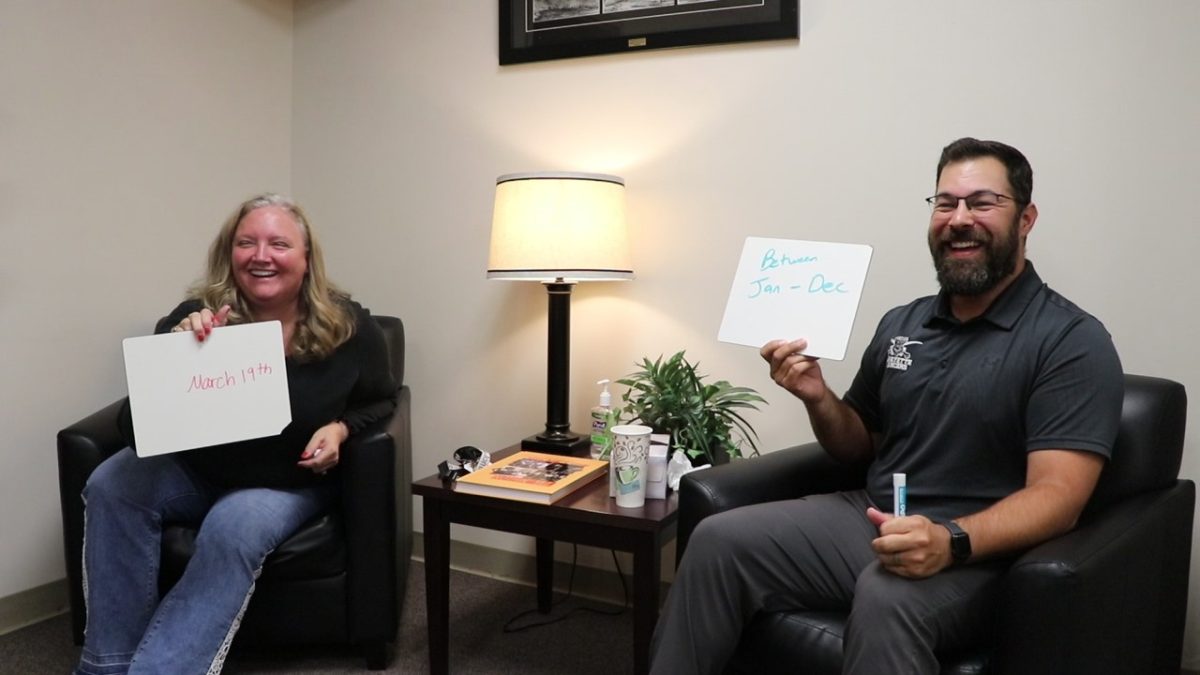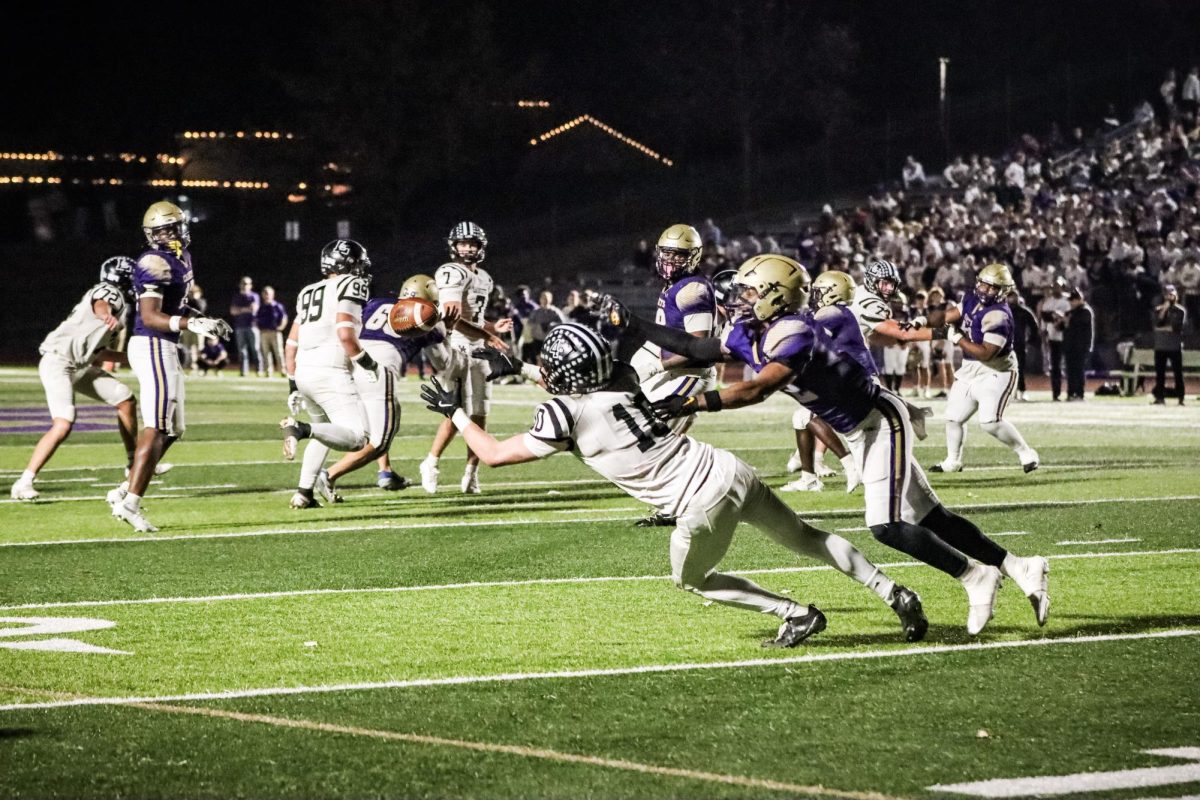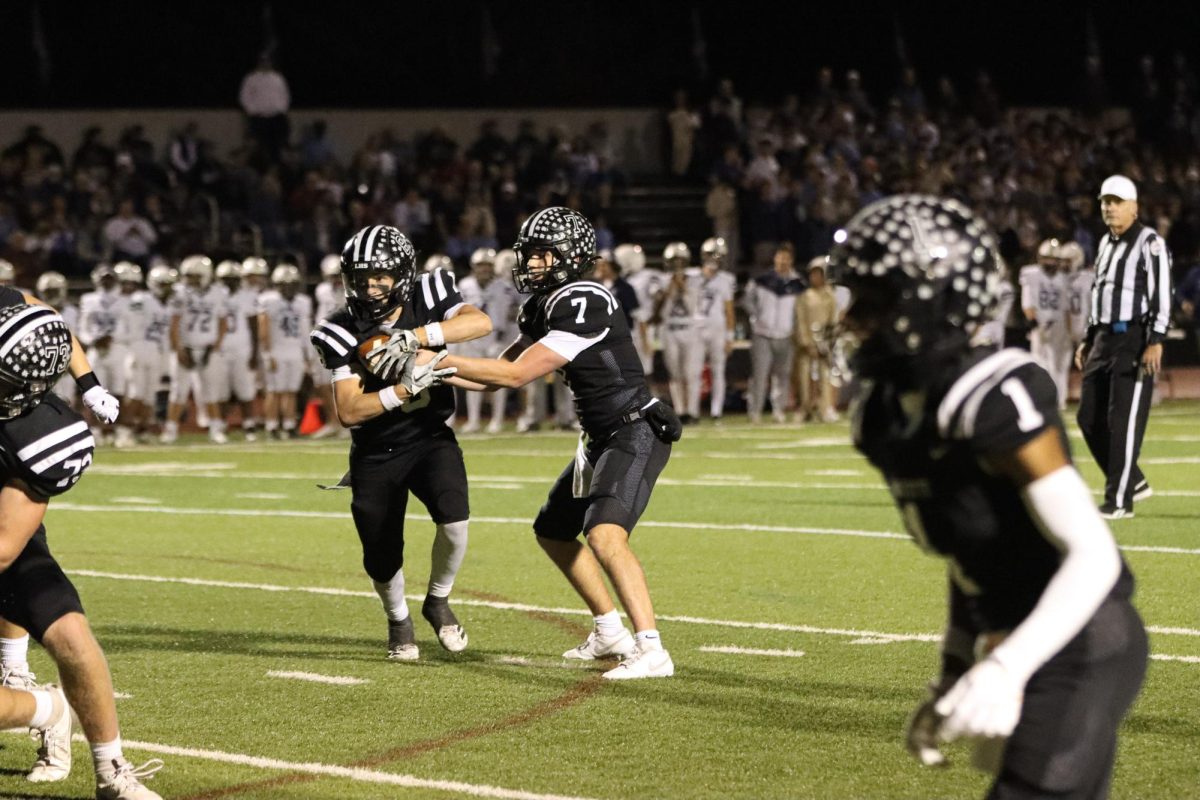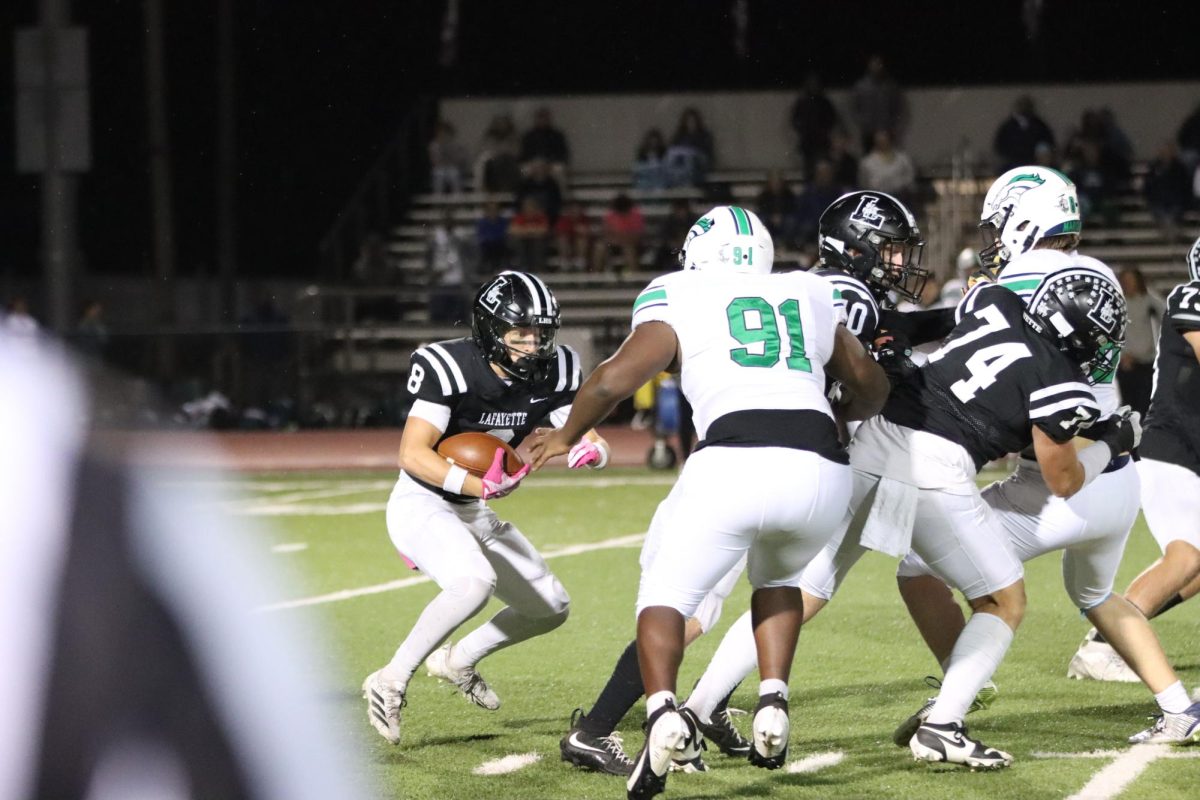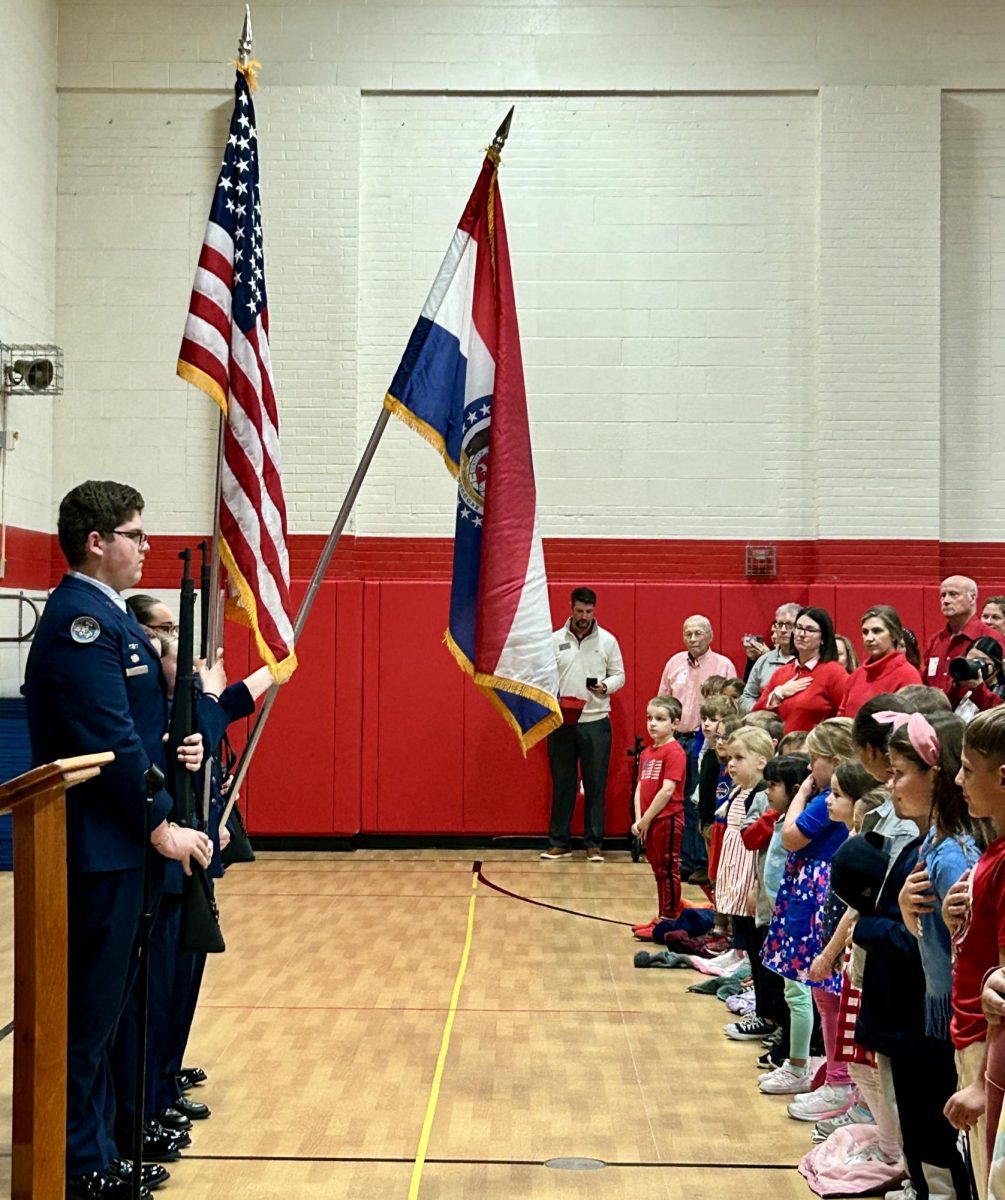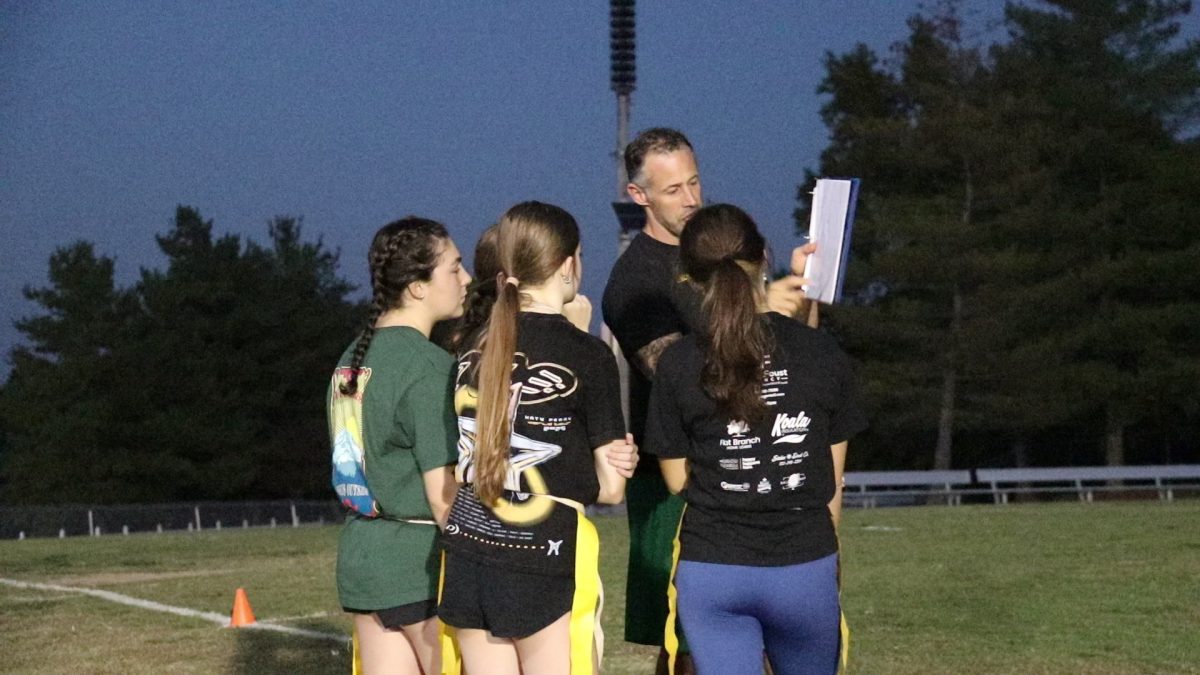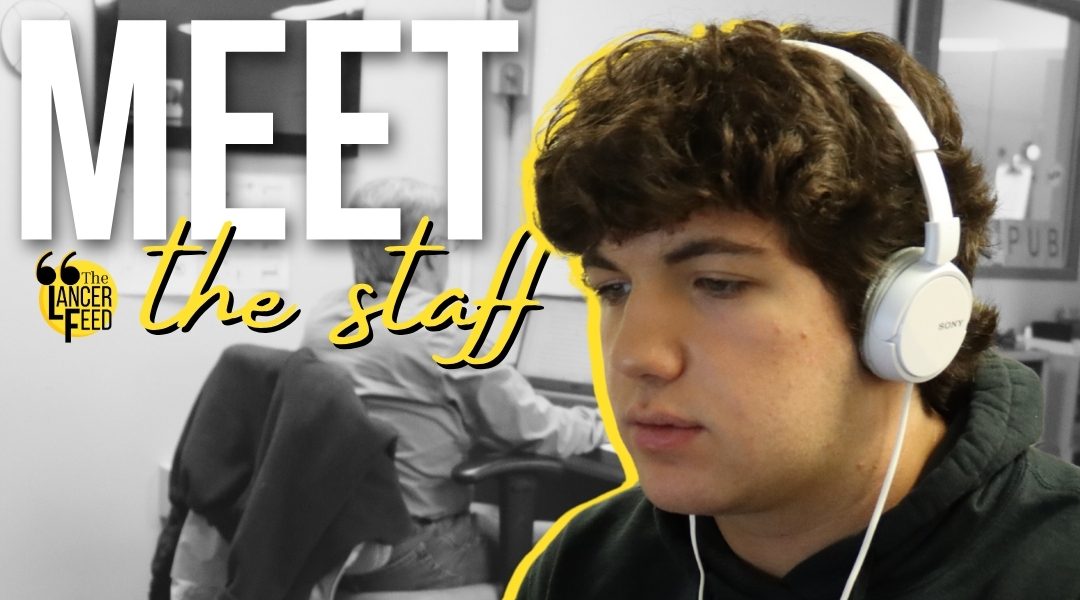Pledge law goes into effect for Missouri public schools
Missouri legislators pass law to require daily recital of Pledge of Allegiance
October 17, 2016
The chime comes on every morning in 1st Hour. Students, still sleepy, grudgingly set down their coffee cups and face the front of the room. Placing a hand on their heart, each student recites the Pledge of Allegiance.
Last month, the Missouri legislature passed a law requiring students in every publicly funded school in the state of Missouri to recite the Pledge daily. No time of day was specified. Republican State Representative Shane Roden-R 111 sponsored the bill.
“I actually had a group of AP (Government) students from Northwest High School who came to us and they felt that it was something that should be done daily rather than once a week,” Roden said.
The students presented their idea and Roden agreed with them. Reflecting on the student’s reasoning for suggesting the idea, Roden said,” There was a time and a place where it once was done daily without having a law, so they looked into that and asked if it (saying the Pledge) should be done daily.”
“If you carry it into the adult world we (legislators) start session in the House and the Senate with a daily prayer and the Pledge,” he added
It took two years for the bill to get passed.
A version of the bill started last year, but it died in committee, meaning that it never got passed into law. In 2016, the bill was filed again by a committee. It was Amendment 638 which also included required CPR training and dyslexia screening for students.
The original version of the bill, the one that died, included the requirement to say the Pledge in English, not any other language.
“There was some controversy last year with the English-only part. We left it out this year to get it done,” Roden said.
When asked about the English-only reasoning, Roden said, “The state of Missouri’s official language is English, and it’s a law that all public business should take place in English.”
Roden believed reciting it in English would unite the students.
Concerning students and those who sit down during the Pledge as a form of protesting, Roden said, “There are some veterans I’d like them to meet. It’s very disheartening to see people who are a part of the dividing part of it. It’s their constitutional right (to not say the Pledge). A Supreme Court case said that we cannot force people to say it. We’re not going to impede on their right.”
Though schools are required to set aside time to recite the Pledge, it is not strictly enforced.
“There’s not pledge police,” Roden said, “there’s no way for the state to come down and see if the schools are saying (it) everyday.”
The feedback so far has been positive, despite the complaints of students in school. Roden said they have been getting positive feedback on social media and phone calls.
Part of the process of getting the bill to be passed included a hearing during session. It provided the opportunity for people to express their opinions on the bill and whether they would like it passed or not. The only opposition came from the American Civil Liberties Union (ACLU) which was about the English only part which was ultimately removed.
Another part of the law includes the requirement of every classroom having an American flag in the room. Flags can be donated to schools.
Roden hopes that the new law of saying the Pledge of Allegiance daily will bring unity among students.

